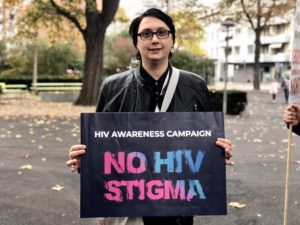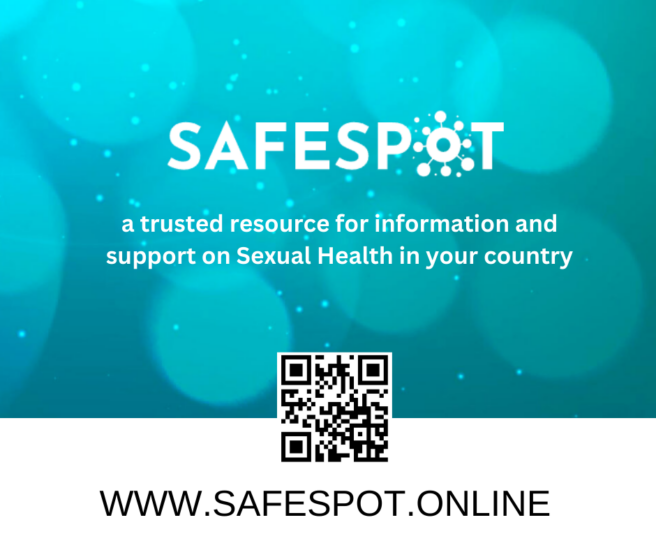 The number of transgender people who use non-injecting drugs has significantly increased in recent years, according to the HPLGBT, a recipient of the Emergency Support Fund for Key Populations in Eastern Europe and Central Asia. As a result of this, their sexual behaviour has become more risky and the likelihood of becoming infected with HIV has increased significantly.
The number of transgender people who use non-injecting drugs has significantly increased in recent years, according to the HPLGBT, a recipient of the Emergency Support Fund for Key Populations in Eastern Europe and Central Asia. As a result of this, their sexual behaviour has become more risky and the likelihood of becoming infected with HIV has increased significantly.
There are very few studies about the use of (new) psychoactive substances (PAS) among LGBTI+ community, so the HPLGBT conducted an analysis of the drug situation. The study shows that in Ukraine, a society undergoing reforms and developing democratic practices, people are still not ready to give up on prohibitive and punitive practices related to problems associated with PAS/NPAS. At the same time, there are unfortunately still no adequate interventions, including harm reduction programs that could meet the needs of transgender, non-binary, queer people and intersex people who use drugs.
Respondents to the analytical survey confirmed that despite all efforts to overcome stigma, an unfavourable model still prevails in society; the idea that “people who use drugs are an absolute evil.” This adversely affects the rights of these people and their access to healthcare. The survey conducted also showed a close relationship between the increase in the number of HIV infections among the target groups of the survey and their chemsex practices. The survey confirmed the increased risks of infection with viral hepatitis, STIs and the existence of other negative consequences among the groups studied, such as chemical dependence, as well as the specific effect of PAS/NPAS on sexual and mental health.
This survey was made possible thanks to the support of the Emergency Support Fund for Key Populations in Eastern Europe and Central Asia. The HPLGBT was assisted by the community representatives themselves, who know the local situation well and have strong ties to target groups. As was expected, high levels of participation by interviewers and respondents occurred in Kiev, the Dnieper, Odessa and Kharkov.
 Igor Medvid, HPLGBT coordinator, said “It came as a surprise to me that respondents often don’t consider their drug use to be drug dependence, even when the dose has to be continually increased in order to achieve the same high/condition. Moreover, despite all the dangers of the practice of chemsex, many claim that they are completely satisfied with their lifestyles. One of the first people to tell us this was a trans sex worker: “Yes, I take stimulant drugs for sex, and you know what? I’m completely fine with it!”
Igor Medvid, HPLGBT coordinator, said “It came as a surprise to me that respondents often don’t consider their drug use to be drug dependence, even when the dose has to be continually increased in order to achieve the same high/condition. Moreover, despite all the dangers of the practice of chemsex, many claim that they are completely satisfied with their lifestyles. One of the first people to tell us this was a trans sex worker: “Yes, I take stimulant drugs for sex, and you know what? I’m completely fine with it!”
The main reason why amphetamine-type stimulants are gaining popularity as a sex drug is that under their influence, people feel improved mood, ability to concentrate, as well as a sense of confidence and comfort, which makes it easy to overcome conversational barriers with clients. Some transsexual sex workers may experience sexual desire, which allows them to serve as many clients as possible. But this phenomenon can be seen as specific to these groups that have been studied in this survey.
However, not everyone understands that under the influence of such drugs there’s an increased risks of infection with HIV, STIs, and hepatitis C. At the same time, in Ukraine, it’s becoming increasingly easy to access these kinds of drugs thanks to new delivery models when the supplier doesn’t need to meet with the buyer. This model is commonly called “bookmarks.”
According to the survey, 58% of respondents were exposed to risky sexual practices. This is a fairly high indicator, and it’s closely related to the fact that 74% of respondents were not protected the last time they had chemsex, which can lead to potentially harmful sexual activity. And this, in turn, is associated with an increased risk of contracting sexually transmitted infections, including HIV.




